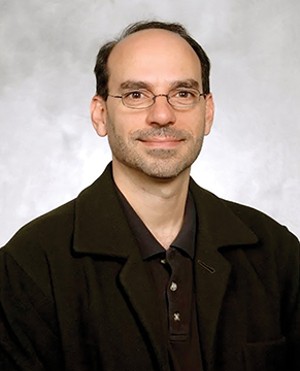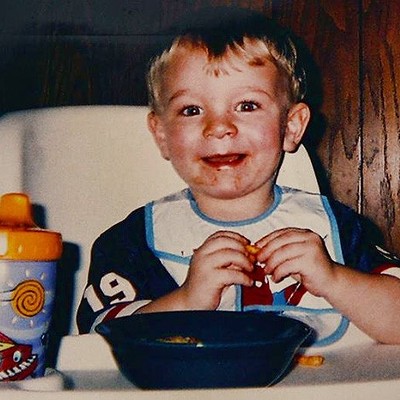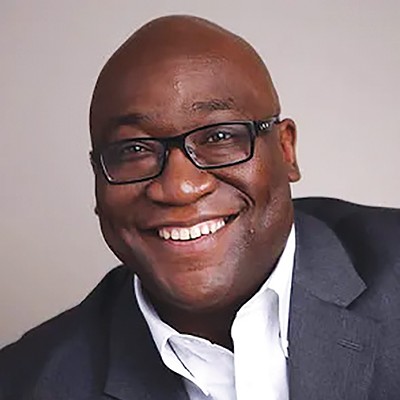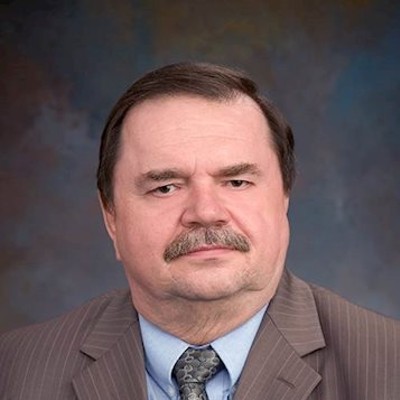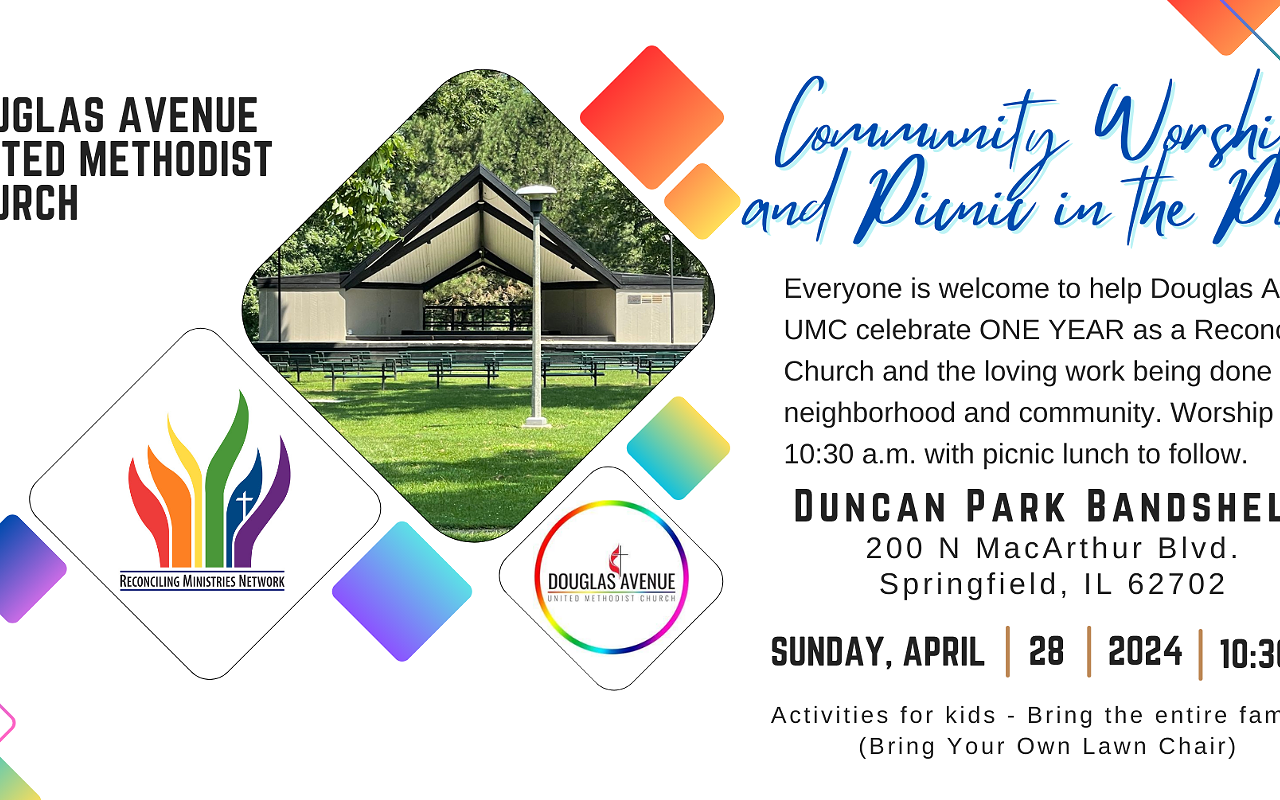From vaccines to child abuse
Springfield doctor gets national attention
[
{
"name": "Air - MedRect Combo - Inline Content 1",
"component": "11490391",
"insertPoint": "3",
"requiredCountToDisplay": "1",
"parentWrapperClass": "fdn-ads-inline-content-block"
},{
"name": "Air - MedRect Combo - Inline Content 2",
"component": "11490392",
"insertPoint": "7",
"requiredCountToDisplay": "5",
"parentWrapperClass": "fdn-ads-inline-content-block"
},{
"name": "Air - MedRect Combo - Inline Content 3",
"component": "11490393",
"insertPoint": "12",
"requiredCountToDisplay": "9",
"parentWrapperClass": "fdn-ads-inline-content-block"
}
]
A recent story in New Yorker magazine paints a Springfield radiologist as a physician who’s moved from the fringe of vaccine controversies to the outer limit of child abuse experts.
Before becoming an expert witness in child abuse cases, Dr. David Ayoub argued that immunization amounts to genocide in the Third World. When it comes to population control via sterilization, he once compared the cost of vaccines to the cost of wars, which are messier and more expensive. “They run toward these bullets, so it’s ideal,” he said in a 2005 speech, according to the magazine.
Thirteen years later, Ayoub, who blames rickets as opposed to violence for broken bones, downplays his criticism of immunization, saying he was concerned about mercury in vaccines and that those levels have been reduced and so his work is done. “I don’t talk about that anymore,” he says.
His views on vaccines, Ayoub says, have nothing to do with his takes on child abuse. Mainstream experts have derided criticism of vaccines as junk science that puts people at risk. Ayoub won’t say whether he believes that vaccines, on balance, do more harm than good. “In order to have an opinion, I have to dig really deep,” Ayoub says. “I know what the popular opinion is.”
When it comes to child abuse, the New Yorker article portrays Ayoub as pushing against a wall of other experts, blaming rickets, time and again, for fractures in infants that have led to charges against caregivers. He’s testified in 80 or so trials, including a few proceedings in Europe and England, and authored reports in, he estimates, 200 other cases. He doesn’t charge for his services. Billing, he says, involves a lot of paperwork, and so he doesn’t bother. He also says that he’s taking on fewer cases these days, but still gets as many as 10 queries a week from lawyers. “I turn down – even when I was doing more – I turn down the vast majority of cases,” he says. “I’ve got too many cases.” He says the defense prevails in about half of the criminal cases in which he testifies.
Not everyone is impressed.
“In every case in which he has written a report, he has expressed the opinion that the child in question suffered from a metabolic bone disease,” a British judge wrote in January. “In a television interview given in about 2010, he said this: ‘I’ve not seen any high-risk family. I don’t believe any case of fractures I’ve seen has been the result of real physical child abuse, that it’s metabolic.’”
The judge wrote that Ayoub doesn’t have sufficient expertise to offer opinions in court, and he criticized the doctor as an advocate with entrenched positions as opposed to an objective expert. “(H)is approach is shot through with the dogma that child abuse is over-diagnosed,” the judge wrote.
Memorial Medical Center, where Ayoub has privileges, notes that the doctor is not an employee and says that it wasn’t aware of Ayoub’s work as an expert witness before the New Yorker published its story last week. “Memorial does not share his views,” Memorial spokesman Michael Leathers wrote in an email.
In a 2016 case tried in Maryland, Ayoub testified that a six-month-old girl who died three days after being taken to an emergency room with broken ribs, a fractured leg, a broken arm, bruises on her face, bleeding in her eyes and a brain injury had suffered from rickets. The jury couldn’t agree on a verdict after hearing Ayoub testify. The doctor didn’t take the stand in a second trial, and the daycare operator charged in the death was convicted and sentenced to 50 years, the New Yorker reported.
Ayoub blames bruises in the Maryland case on disseminated intravascular coagulation, a blood condition unrelated to violence. The bleeding eyes and brain injury, he says, also could have been natural ailments. The dead girl, he says, showed no bruising or internal injuries in extremities or on her torso that would be expected if she’d been beaten, although he also acknowledges that he isn’t a bruise expert.
Contrary to what the New Yorker published and what others say, Ayoub says that rickets isn’t a rare condition in infants. Rather, he says, it’s commonplace, and doctors going back nearly a century ago knew it. That’s why, he says, mothers once were counseled to dose babies with cod liver oil, which is rich in bone-strengthening Vitamin D, and put infants in the sun for an hour or more each day to help kids absorb the critical vitamin that staves off rickets. “Rickets has been removed from the textbooks,” he says.
An overlooked epidemic of rickets, Ayoub says, has broken out due to lack of awareness and preventative measures. Most cases are mild, undiagnosed and self-correcting, he says, but a small percentage are severe enough that even routine handling of a baby can result in fractures. In a recent Florida case, Ayoub testified that an infant who suffered fractures to an arm, a shin bone and a thigh bone likely was injured while being held down for immunizations at a doctor’s office. Two experts who disputed Ayoub’s analysis pointed out that the child, who had more than a dozen fractures, suffered not a single broken bone after being separated from his accused abuser, according to the New Yorker story.
Ayoub says the sheer number of fractures in the Florida case and others, without corresponding bruises or injuries to internal organs, supports his view that rickets, not violence, is the cause. He says a patient run over by a car typically sustains six factures, and so dozens of fractures sustained by a baby often can’t be explained by abuse.
Ayoub dismisses criticism that he hasn’t been trained in pediatric radiology and that he doesn’t routinely see infants in his practice. Not being an pediatric radiologist, he says, allows him to look at cases with fresh eyes. “I’m not a pediatric radiologist,” he says. “I didn’t drink the Kool-Aid.”
Political correctness, Ayoub says, explains why he’s being attacked. Judges, he said, tend to be former prosecutors. As such, they’ve been part of a system that’s unfairly put wrongly accused child abusers in jail and are reluctant to reconsider mindsets. He also says that he didn’t intend on becoming controversial when he first agreed to look at a case involving fractures to an infant when a colleague asked for help a decade ago.
“I didn’t get into this thinking ‘I’m going to stir the pot,’” he says.
Contact Bruce Rushton at [email protected].
Before becoming an expert witness in child abuse cases, Dr. David Ayoub argued that immunization amounts to genocide in the Third World. When it comes to population control via sterilization, he once compared the cost of vaccines to the cost of wars, which are messier and more expensive. “They run toward these bullets, so it’s ideal,” he said in a 2005 speech, according to the magazine.
Thirteen years later, Ayoub, who blames rickets as opposed to violence for broken bones, downplays his criticism of immunization, saying he was concerned about mercury in vaccines and that those levels have been reduced and so his work is done. “I don’t talk about that anymore,” he says.
His views on vaccines, Ayoub says, have nothing to do with his takes on child abuse. Mainstream experts have derided criticism of vaccines as junk science that puts people at risk. Ayoub won’t say whether he believes that vaccines, on balance, do more harm than good. “In order to have an opinion, I have to dig really deep,” Ayoub says. “I know what the popular opinion is.”
When it comes to child abuse, the New Yorker article portrays Ayoub as pushing against a wall of other experts, blaming rickets, time and again, for fractures in infants that have led to charges against caregivers. He’s testified in 80 or so trials, including a few proceedings in Europe and England, and authored reports in, he estimates, 200 other cases. He doesn’t charge for his services. Billing, he says, involves a lot of paperwork, and so he doesn’t bother. He also says that he’s taking on fewer cases these days, but still gets as many as 10 queries a week from lawyers. “I turn down – even when I was doing more – I turn down the vast majority of cases,” he says. “I’ve got too many cases.” He says the defense prevails in about half of the criminal cases in which he testifies.
Not everyone is impressed.
“In every case in which he has written a report, he has expressed the opinion that the child in question suffered from a metabolic bone disease,” a British judge wrote in January. “In a television interview given in about 2010, he said this: ‘I’ve not seen any high-risk family. I don’t believe any case of fractures I’ve seen has been the result of real physical child abuse, that it’s metabolic.’”
The judge wrote that Ayoub doesn’t have sufficient expertise to offer opinions in court, and he criticized the doctor as an advocate with entrenched positions as opposed to an objective expert. “(H)is approach is shot through with the dogma that child abuse is over-diagnosed,” the judge wrote.
Memorial Medical Center, where Ayoub has privileges, notes that the doctor is not an employee and says that it wasn’t aware of Ayoub’s work as an expert witness before the New Yorker published its story last week. “Memorial does not share his views,” Memorial spokesman Michael Leathers wrote in an email.
In a 2016 case tried in Maryland, Ayoub testified that a six-month-old girl who died three days after being taken to an emergency room with broken ribs, a fractured leg, a broken arm, bruises on her face, bleeding in her eyes and a brain injury had suffered from rickets. The jury couldn’t agree on a verdict after hearing Ayoub testify. The doctor didn’t take the stand in a second trial, and the daycare operator charged in the death was convicted and sentenced to 50 years, the New Yorker reported.
Ayoub blames bruises in the Maryland case on disseminated intravascular coagulation, a blood condition unrelated to violence. The bleeding eyes and brain injury, he says, also could have been natural ailments. The dead girl, he says, showed no bruising or internal injuries in extremities or on her torso that would be expected if she’d been beaten, although he also acknowledges that he isn’t a bruise expert.
Contrary to what the New Yorker published and what others say, Ayoub says that rickets isn’t a rare condition in infants. Rather, he says, it’s commonplace, and doctors going back nearly a century ago knew it. That’s why, he says, mothers once were counseled to dose babies with cod liver oil, which is rich in bone-strengthening Vitamin D, and put infants in the sun for an hour or more each day to help kids absorb the critical vitamin that staves off rickets. “Rickets has been removed from the textbooks,” he says.
An overlooked epidemic of rickets, Ayoub says, has broken out due to lack of awareness and preventative measures. Most cases are mild, undiagnosed and self-correcting, he says, but a small percentage are severe enough that even routine handling of a baby can result in fractures. In a recent Florida case, Ayoub testified that an infant who suffered fractures to an arm, a shin bone and a thigh bone likely was injured while being held down for immunizations at a doctor’s office. Two experts who disputed Ayoub’s analysis pointed out that the child, who had more than a dozen fractures, suffered not a single broken bone after being separated from his accused abuser, according to the New Yorker story.
Ayoub says the sheer number of fractures in the Florida case and others, without corresponding bruises or injuries to internal organs, supports his view that rickets, not violence, is the cause. He says a patient run over by a car typically sustains six factures, and so dozens of fractures sustained by a baby often can’t be explained by abuse.
Ayoub dismisses criticism that he hasn’t been trained in pediatric radiology and that he doesn’t routinely see infants in his practice. Not being an pediatric radiologist, he says, allows him to look at cases with fresh eyes. “I’m not a pediatric radiologist,” he says. “I didn’t drink the Kool-Aid.”
Political correctness, Ayoub says, explains why he’s being attacked. Judges, he said, tend to be former prosecutors. As such, they’ve been part of a system that’s unfairly put wrongly accused child abusers in jail and are reluctant to reconsider mindsets. He also says that he didn’t intend on becoming controversial when he first agreed to look at a case involving fractures to an infant when a colleague asked for help a decade ago.
“I didn’t get into this thinking ‘I’m going to stir the pot,’” he says.
Contact Bruce Rushton at [email protected].
Illinois Times has provided readers with independent journalism for almost 50 years, from news and politics to arts and culture.
Your support will help cover the costs of editorial content published each week. Without local news organizations, we would be less informed about the issues that affect our community..
Got something to say?
Send a letter to the editor and we'll publish your feedback in print!

